
Does Wearing Headphones Make Your Hair Greasy
April 16, 2023
How To Choose The Perfect Speakers: Your Ultimate Guide
April 23, 2023Wired vs Bluetooth Speakers: Which One Should You Choose?
As technology continues to evolve, so do the ways in which we listen to music.
For many years, wired speakers were the go-to option for those who wanted high-quality sound without any interference or connectivity issues.
However, with the rise of Bluetooth technology, wireless options have become increasingly popular among consumers.
In this article, we’ll take a closer look at Bluetooth vs wired speakers, exploring their respective advantages and disadvantages to help you make an informed choice.
Whether you’re a die-hard audiophile or simply looking for a way to enjoy your favorite tunes on-the-go, understanding the differences between these two types of speakers is essential for taking control over your listening experience.
Table of Contents
Understanding Wireless Speakers
When it comes to wireless speakers, there are two types to choose from: Bluetooth and wired. Both offer their own set of advantages and disadvantages, so let’s explore the benefits of wireless speakers and how to easily connect them.
With Bluetooth speakers, users get the convenience of portability, no messy wires, and easy setup.
Meanwhile, wired speakers offer superior sound quality and reliability.
Connecting wireless speakers is a breeze, simply pair the device with your audio source and you’re good to go.
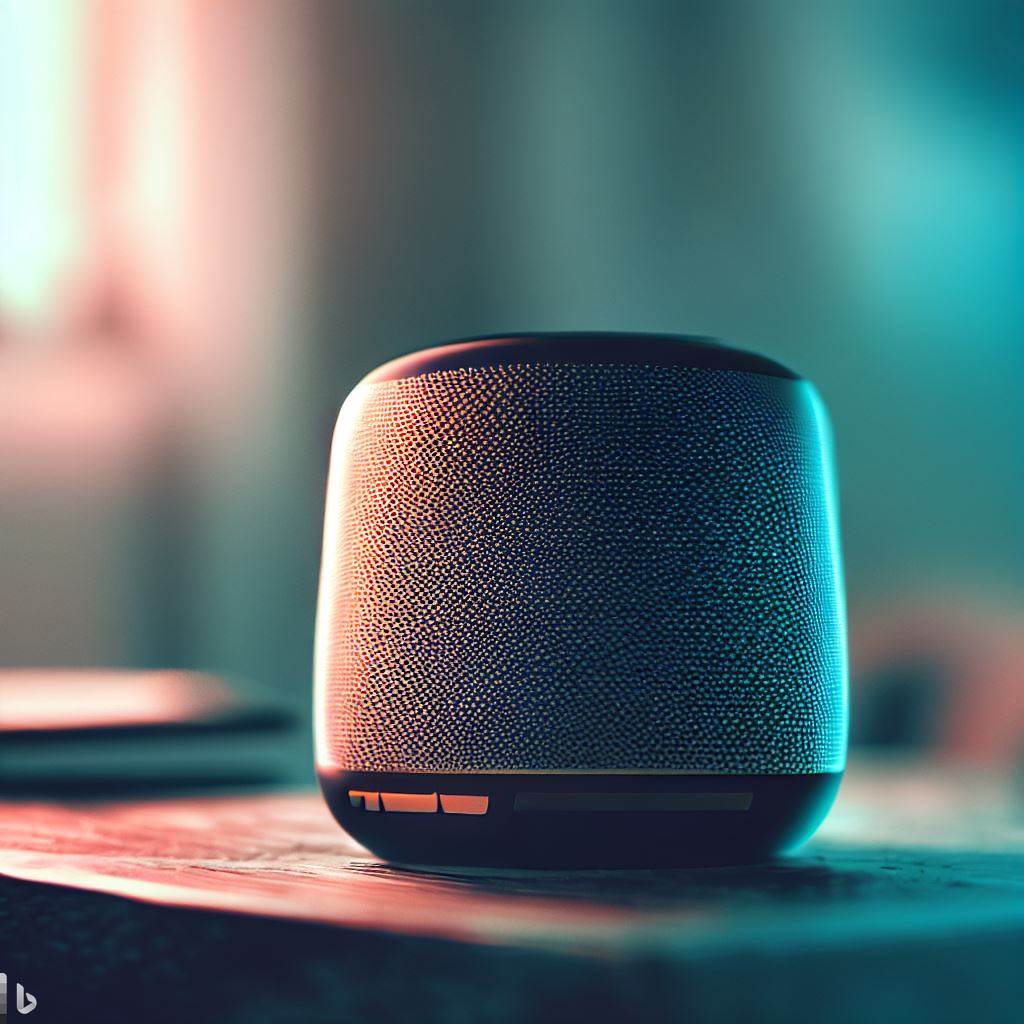
Types Of Wireless Speakers
Imagine being able to control your music from across the room, without having to get up and physically plug in a device. This is where wireless speakers come in!
When it comes to types of wireless speakers, there are two main options: Bluetooth and wired. Bluetooth speakers connect wirelessly via Bluetooth technology, allowing for easy pairing with compatible devices like smartphones or tablets. On the other hand, wired speakers require physical connections between the speaker and audio source using cables such as aux cords or USBs.
While both have their pros and cons, Bluetooth speakers offer more flexibility and convenience for those who want to enjoy high-quality sound on-the-go without any hassle. With so many different types of wireless speakers available today, it’s important to consider which one will best suit your needs before making a purchase decision.
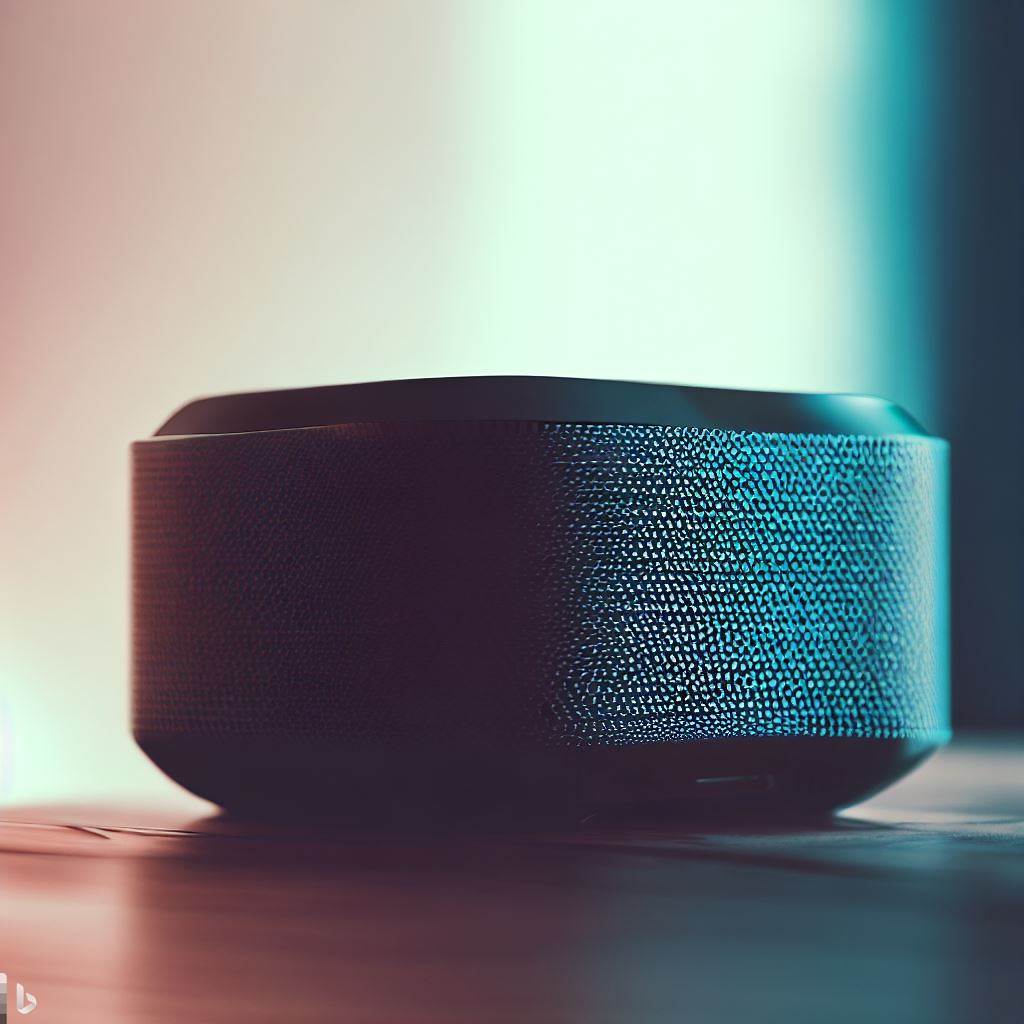
Benefits Of Wireless Speakers
Now that we have a basic understanding of the different types of wireless speakers, let’s dive into the benefits of using them.
First and foremost, wireless speakers offer unparalleled convenience for anyone who wants to enjoy music without being tied down by cords or cables. With Bluetooth technology, you can easily connect your smartphone or tablet to a wireless speaker and control your music from anywhere in the room. This means no more getting up to change songs or adjust the volume!
Additionally, wireless speakers come in all shapes and sizes, making them perfect for any occasion – whether it’s a small gathering with friends or a big party.
So if you’re looking for an easy way to take your audio experience to the next level, consider investing in a high-quality wireless speaker today.
Connecting Wireless Speakers
Now that we’ve explored the benefits of wireless speakers, let’s dive into the crucial aspect of connecting them.
Connecting wireless speakers is relatively straightforward compared to wired ones. With Bluetooth technology, you can effortlessly pair your devices with compatible wireless speakers and stream music wirelessly without any tangled cords or cables.
The beauty of using a Bluetooth speaker over a wired one lies in its flexibility and ease of use. You don’t have to worry about being tethered to a specific location or dealing with managing wires – all you need is an active Bluetooth connection.
In our next section, we’ll take a closer look at how to connect your wireless speaker and unlock even more control over your audio experience.

Wireless Connectivity Options
When it comes to wireless connectivity, there are several popular options to choose from:
– Bluetooth
– WiFi
– NFC
– Radio Frequency
– Infrared
– Cellular
– Mesh Networks
Each of these technologies comes with its own set of pros and cons, so it’s important to consider which method would best suit your needs.
Bluetooth
Hey there, audiophiles! Are you tired of being tethered to your wired speakers?
Well, fear not because Bluetooth technology has revolutionized the way we listen to music. With wireless speakers that utilize Bluetooth connectivity, you can now enjoy high-quality sound without tripping over cords or having to sit right next to the speaker.
The freedom and convenience that comes with Bluetooth technology is unparalleled – simply pair your device with the speaker and let the music play. No more fussing around with tangled wires or trying to find a place for your bulky speaker.
So if you’re looking for a seamless listening experience, consider investing in some Bluetooth wireless speakers today!
Wifi
Now that we’ve covered the convenience of Bluetooth speakers, let’s talk about another wireless connectivity option: WiFi.
While Bluetooth is great for short-range connections between your device and speaker, WiFi offers a wider range and can connect multiple devices to one speaker.
With WiFi-enabled speakers, you can easily stream music from online sources or even control the speaker through an app on your phone.
Plus, many WiFi speakers offer voice-control options like Alexa or Google Assistant integration.
The possibilities are endless with this powerful technology – no more limits on where you can listen or what devices you can use.
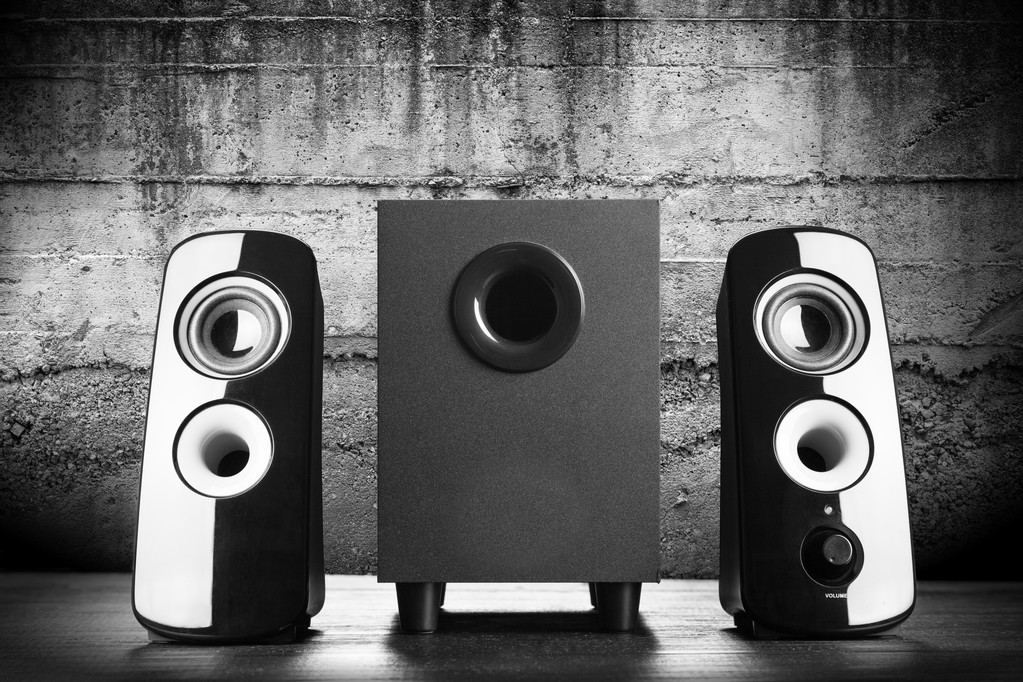
Comparing Wireless And Wired Speakers
When it comes to audio quality, wired speakers tend to outshine wireless ones due to their lack of compression.
Setting up wired speakers is more straightforward than bluetooth ones, as they only require a connection to a power source and audio input.
Cost-wise, wired speakers are generally cheaper than their wireless counterparts, making them a more economical choice.
Audio Quality
If you’re in the market for speakers, it’s important to consider audio quality.
Bluetooth speakers have come a long way over the years and now offer impressive sound quality that can rival wired speakers.
However, there are still some differences between the two when it comes to audio quality.
Wired speakers tend to offer higher fidelity and greater clarity than their wireless counterparts.
This is because they don’t rely on compressed audio files or wireless transmission technology which can sometimes cause signal loss or interference.
That being said, many high-end bluetooth speakers use advanced codecs like aptX to deliver high-quality audio with minimal distortion, making them a great option for those who value convenience without sacrificing too much in terms of performance.
Ultimately, whether you choose wired or bluetooth depends on your specific needs and preferences when it comes to audio quality.
Setup
Now that we’ve discussed the differences in audio quality between bluetooth and wired speakers, let’s move on to another important factor: setup.
When it comes to speaker setup, wired speakers generally require more effort and technical know-how than their wireless counterparts.
You’ll need to run wires from your amplifier or receiver to each individual speaker, which can be a hassle if you’re dealing with multiple rooms or tight spaces.
On the other hand, setting up bluetooth speakers is as simple as pairing them with your device of choice and placing them wherever you’d like.
However, keep in mind that some high-end wired systems offer advanced features like room calibration and sound optimization tools that might not be available with all bluetooth speakers.
So while ease of setup may be an advantage for bluetooth speakers, it’s important to consider what features are most important to you before making a decision between bluetooth vs wired speakers.
Cost
Now that we’ve explored the setup aspect of comparing bluetooth and wired speakers, let’s move on to another important factor: cost.
When it comes to audio technology, price is often a major consideration for consumers who want high-quality sound without breaking the bank.
Generally speaking, wireless bluetooth speakers are more affordable than their wired counterparts due to lower manufacturing costs and fewer components required for operation.
Plus, with no wires or cables needed, you can save money on installation fees as well.
However, keep in mind that some high-end bluetooth speakers can come with a hefty price tag if they offer advanced features like voice control or multi-room connectivity.
On the other hand, while wired systems may require a larger investment upfront due to additional equipment and installation expenses, they typically provide better overall sound quality and reliability over time.
So before making your decision between bluetooth and wired speakers based on cost alone, it’s important to weigh all factors carefully to find the best fit for your needs and budget.
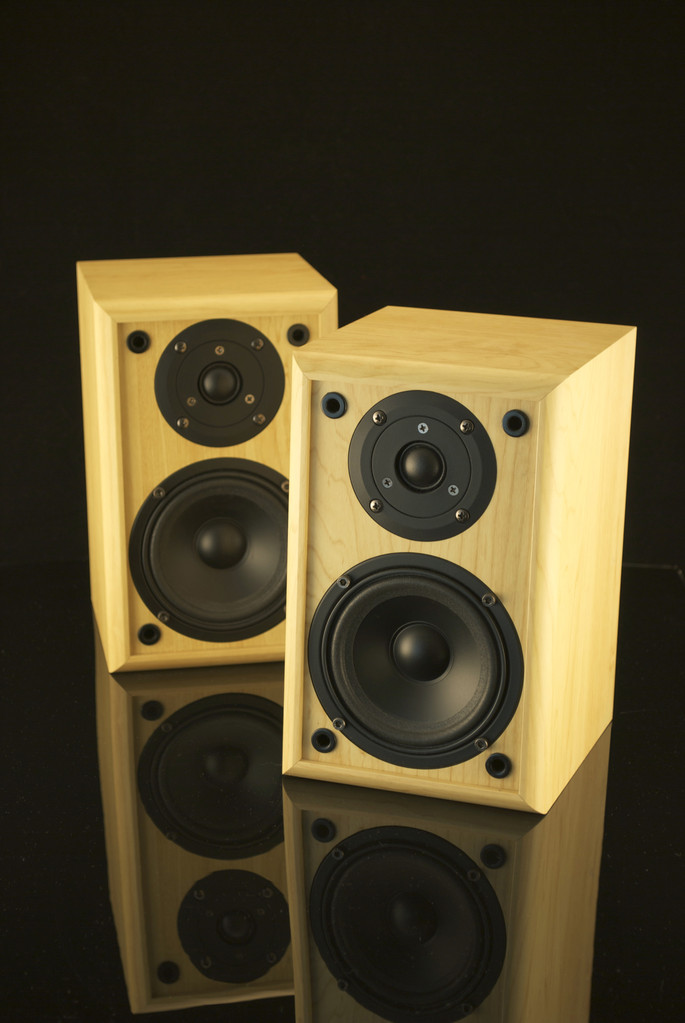
Advantages Of Wired Speakers
When it comes to high quality audio, wired speakers offer a more reliable signal than their bluetooth counterparts, resulting in a more detailed, immersive sound experience.
Similarly, wired speakers also provide a lower latency, making them ideal for applications such as gaming where even a small delay in audio can be detrimental.
High Quality Audio
As audio technology continues to advance, the debate over whether bluetooth or wired speakers provide better sound quality rages on.
However, when it comes to high-quality audio, there is no denying that wired speakers are the clear winner.
With a direct connection between the source and speaker, wired speakers eliminate any potential for signal loss or interference that may occur with wireless transmission.
This ensures that every nuance of sound is delivered with crystal-clear precision, allowing audiophiles to fully immerse themselves in their favorite music or movies without missing a beat.
While bluetooth technology has certainly come a long way in recent years, it still cannot compete with the reliability and fidelity of wired connections when it comes to delivering truly high-quality audio experiences.
Low Latency
Now, let’s talk about low latency, another advantage of wired speakers.
Latency refers to the delay between when a sound is produced and when it is heard by the listener.
When using bluetooth speakers, there can be a noticeable delay due to signal processing and transmission time.
With a wired connection, however, this delay is virtually eliminated as the audio signal travels directly from the source to the speaker without any interference or lag.
This means that users can enjoy their music or movies with precision timing, allowing for a more immersive experience overall.
So while bluetooth technology may offer convenience and portability, it simply cannot match the low latency benefits of a reliable wired connection.
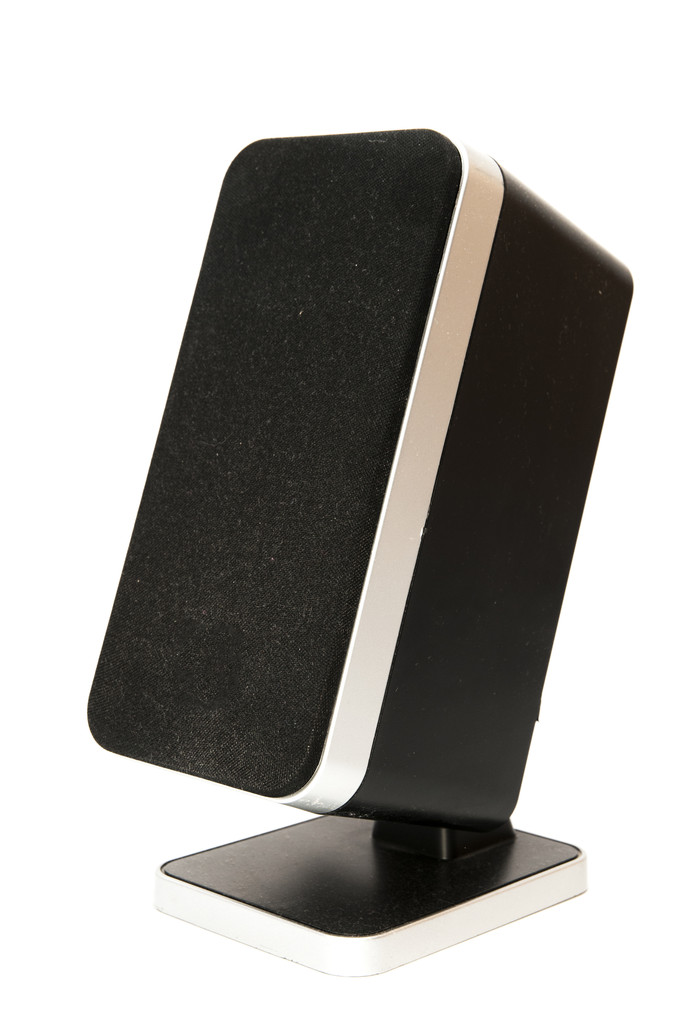
Advantages Of Wireless Speakers
Portability is a major advantage of wireless speakers. With no cords or wires to deal with, you can take your speaker anywhere with you, making it the perfect choice for outdoor events.
Convenience is another benefit of wireless speakers; there’s no need to worry about finding outlets or long wires, making them much easier to set up and use.
Lastly, wireless speakers offer great compatibility with a wide range of devices, from phones and tablets to laptops and other audio sources.
Portability
Hey there, music lovers! Are you tired of being tethered to your wired speakers? Say goodbye to cords and hello to the freedom of portable wireless speakers!
With bluetooth speakers, you can take your tunes wherever you go. Whether it’s a beach party or a backyard barbecue, these little powerhouses provide high-quality sound without any hassle. No more worrying about tripping over wires or finding an outlet – just grab your portable wireless speaker and hit play.
And with so many options on the market, you’re sure to find one that fits your style and budget. So why limit yourself with wired speakers when you can have the convenience and portability of bluetooth speakers?
Convenience
Now that we’ve talked about the convenience of portable bluetooth speakers, let’s dive deeper into this aspect.
With wireless connections, you can enjoy seamless streaming without any cords getting in your way. No more tangled wires or limited mobility – just pure freedom to move around as you please while still enjoying high-quality sound.
Additionally, many bluetooth speakers come with built-in controls, allowing you to adjust volume and skip tracks from a distance. This gives you even more control over your listening experience, making it easier than ever to create the perfect ambiance for any occasion.
So if you’re looking for a convenient audio solution that puts you in charge, look no further than these powerful little devices!
Compatibility
Now that we’ve covered the convenience of wireless connections in our previous discussion, let’s move onto another key advantage of bluetooth speakers: compatibility.
When it comes to audio technology, there are two main types of speakers – wired and wireless. While wired speakers may have their own set of advantages, they simply can’t match the flexibility and ease-of-use provided by their wireless counterparts.
With bluetooth connectivity, you can easily pair your speaker with a range of devices including smartphones, laptops, and tablets without any hassle or cords getting in your way. This gives you more options for enjoying your music on-the-go while still maintaining control over your listening experience.
So whether you’re looking to stream music from Spotify or watch a movie on Netflix, rest assured that these portable powerhouses have got you covered!
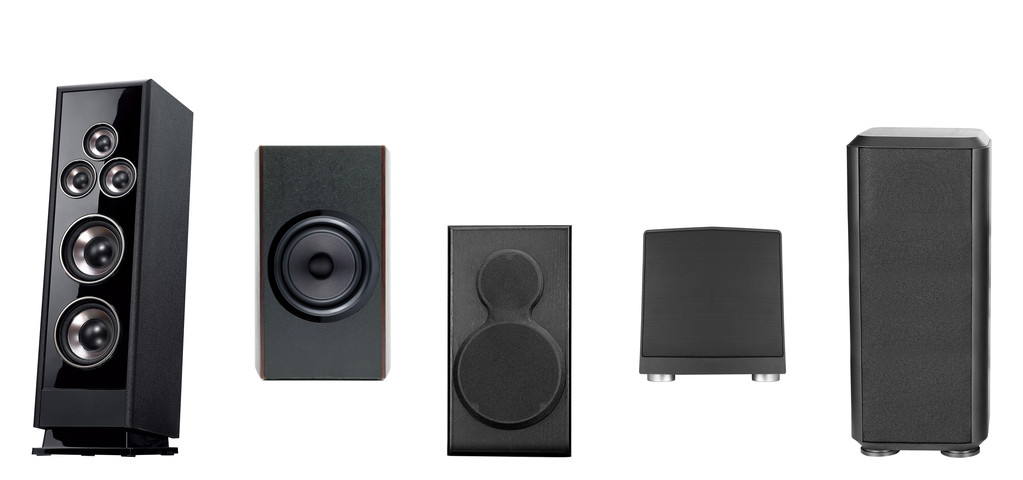
Factors To Consider When Choosing Between Wired And Wireless Speakers
As we discussed in the previous section, wireless speakers have numerous advantages over their wired counterparts. However, when it comes to factors to consider between wired and wireless speakers, there are a few things that need to be taken into account.
Firstly, sound quality is often better with wired speakers as they can transmit uncompressed audio data without any loss of fidelity. This makes them ideal for audiophiles who want high-quality music playback at home.
On the other hand, Bluetooth technology has come a long way in recent years and many top-of-the-line models now offer excellent sound quality even wirelessly.
Ultimately, whether you choose wired or wireless speakers will depend on your specific requirements such as portability needs or distance from the source device. It’s important to weigh up all these factors before making a decision about which type of speaker setup would work best for your home audio system.
Best Uses For Wired And Wireless Speakers
Ah, the age-old debate between wired and wireless speakers. Which one is better? Well, that depends on what you’re looking for in your audio experience.
Do you want the best sound quality possible or do you value convenience over everything else? Let’s explore the best uses for both wired and wireless speakers.
Wired speakers are known for their superior sound quality. They offer a reliable connection to your device, ensuring that there are no interruptions or dropouts in your music. If you’re setting up a home theater system or surround sound, wired speakers are definitely the way to go. You’ll get an immersive audio experience that will make you feel like you’re right in the middle of all the action.
However, if running wires throughout your house isn’t feasible or if you prefer a more streamlined setup, then wireless speakers might be a better choice for you.
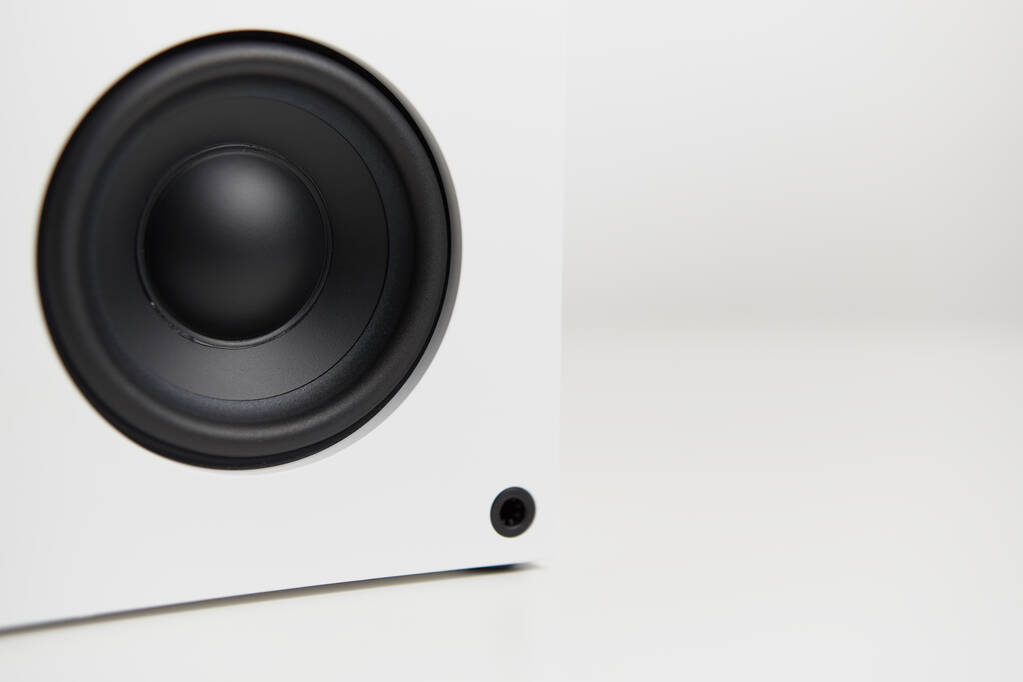
Making The Right Choice For Your Audio Needs
When it comes to choosing between wired vs wireless speakers, the decision ultimately depends on your audio needs. While both have their advantages and disadvantages, it’s important to consider factors such as sound quality, home theater system compatibility, and ease of use.
If you’re an audiophile who prioritizes high-quality sound above all else, then wired speakers are the way to go. They offer a more stable connection that doesn’t drop out or suffer from interference like Bluetooth and Wi-Fi can. Additionally, wired speakers tend to have better frequency response and dynamic range than their wireless counterparts.
On the other hand, if convenience is your top priority, then Bluetooth and Wi-Fi-enabled speakers may be the better choice for you. These types of audio equipment allow for easy pairing with mobile devices and streaming services without the need for cables or adapters. They also often come in portable designs that make them perfect for outdoor gatherings or impromptu dance parties.
Factors to consider when deciding between wired vs wireless speakers:
1. Sound quality
2. Compatibility with home theater systems
3. Ease of use
4. Budget
Ultimately, whether you choose wired vs wireless speakers will depend on what matters most to you – superior sound quality or hassle-free portability? Consider these key factors before making a purchase to ensure that you get the best possible audio experience that fits within your budget constraints.
Conclusion
In conclusion, when it comes to choosing between Bluetooth and wired speakers, the decision ultimately depends on your personal preferences and needs. While wired speakers offer a reliable connection with high-quality sound, wireless speakers provide convenience and flexibility.
Think of it like choosing between a classic vinyl record player or a modern streaming service. Both have their benefits and drawbacks, but it all comes down to what you value most in your audio experience.
So take some time to weigh the advantages and disadvantages of both options before making your choice.
As an audio engineer, I encourage you to consider how you will be using your speakers and what features are important to you. Whether you prefer the traditional reliability of wired connectivity or the freedom of wireless connections, there is no right or wrong answer – only what works best for you.
So go ahead and make your pick – let’s get ready to rock!
Thanks for reading.
Tom
What is the difference between wired and wireless speaker systems?
The main difference between wired and wireless speakers lies in how they receive audio signals. Wired speakers require physical connections to an audio source, typically through speaker wires or cables, while wireless speakers, like Bluetooth or Wi-Fi speakers, rely on wireless signals to receive audio from compatible devices such as smartphones, tablets, or stereo receivers.
Do wired and Bluetooth speaker setups provide different levels of sound quality?
Wired speaker systems often deliver better sound quality as they have a more stable connection with less risk of interference or signal loss. Bluetooth speakers are more convenient due to their portability and easy setup. However, advancements in wireless technology have significantly improved the sound quality of Bluetooth and Wi-Fi speakers, making the difference less noticeable in most cases.
Can I have a surround sound system with wireless speakers?
Yes, you can have a wireless surround speaker setup comprising Bluetooth or Wi-Fi speakers that are strategically placed around your room to create a surround sound experience. While the setup can be more convenient, it is important to ensure that your wireless speakers are compatible with the surround sound system standards, such as Dolby Atmos or DTS:X, for optimum performance.
How do wireless speakers connect to a home audio system?
Wireless speakers, including Bluetooth and Wi-Fi models, connect to a home audio system through a wireless signal. For Bluetooth speakers, you will need to pair them with your audio source, which may be a smartphone, tablet, or compatible receiver. Wi-Fi speakers typically require connecting to your home network through a mobile app, which then enables streaming from different devices or services.
Are wired speaker systems less affordable than their wireless counterparts?
Wired speaker systems can be more affordable due to the lack of the need for built-in wireless technology. However, several factors, such as the brand, speaker design, and features, can influence the overall cost of both wired and wireless speaker systems. These elements may contribute to an overlapping price range, making some wired speaker systems more expensive and others more affordable than wireless options.
How do I choose between wired vs. wireless surround speakers for my home theater?
Choosing between wired and wireless surround speakers for your home theater depends on personal preference, budget, space, and desired sound quality. If you prefer a stable connection with potentially better sound quality and don’t mind the extra cables, a wired surround speaker setup might be the right choice. However, if you prefer a more convenient and clutter-free setup, wireless surround speakers may be more suitable.
What are the pros and cons of a wireless home audio system?
Wireless home audio systems offer convenience, easy setup and installation, and the ability to connect multiple devices without running cables throughout your space. On the downside, they may face signal interference, have sound quality limitations, and rely on a stable Wi-Fi or Bluetooth connection to maintain performance. Additionally, they can be more expensive than wired audio systems.
Can I combine wired and wireless speakers in my surround sound system?
Combining wired and wireless speakers in a surround sound system can be possible but could present some challenges in terms of compatibility, audio synchronization, and control. It is crucial to ensure that all speakers and the audio receiver work together seamlessly to create an immersive audio experience, and this may require additional equipment or setup adjustments.
How do I ensure the best sound quality when using wireless surround speakers?
To ensure the best sound quality when using wireless surround speakers, choose high-quality speakers from reputable brands that are compatible with your audio receiver or home theater system. Place the speakers strategically around your room and follow the manufacturer’s guidelines for the recommended distance, angle, and height. Using a strong and stable Wi-Fi or Bluetooth connection can help minimize signal interference or loss.
Are there any top-rated wireless speaker options I should consider?
There are various high-quality wireless speaker options available, such as Sonos, Bose, and KEF, among others, providing excellent sound quality and reliability for different budget ranges. Take time to research and compare models, read reviews, and consider factors like compatibility, room size, and design preferences to find the best wireless speakers to suit your needs.
I’m Tom S. Ray and I’m head mastering engineer at Audio Unity Group. I also hold a bachelor with honours degree in music from Kingston University in London, I lecture mastering to students in Edinburgh College and to my online students via my Mastering Mastery audio mastering online course.



